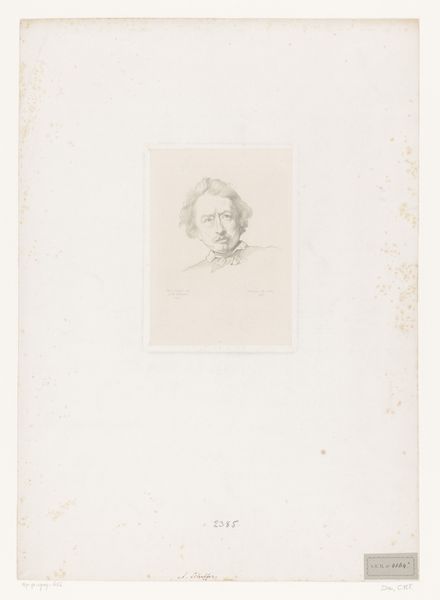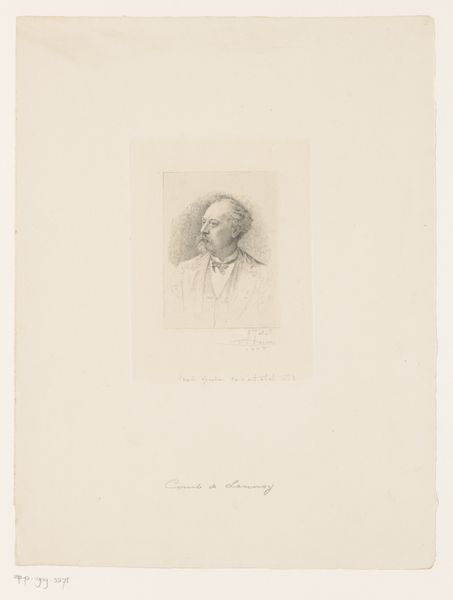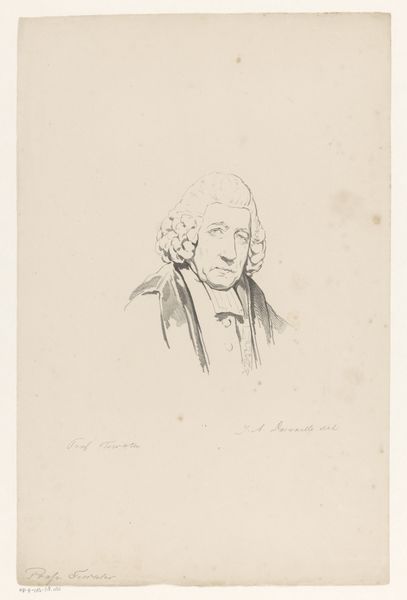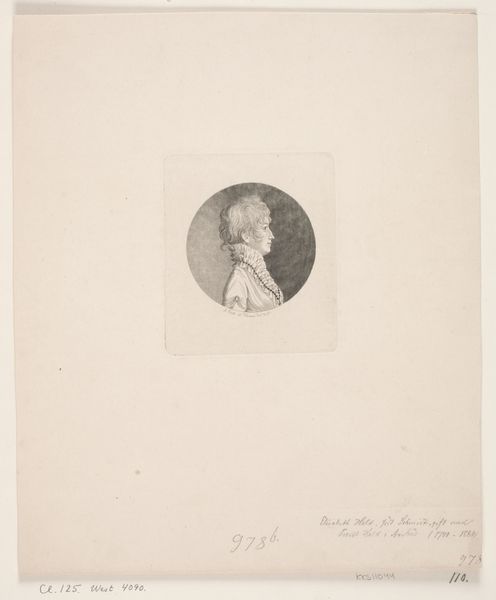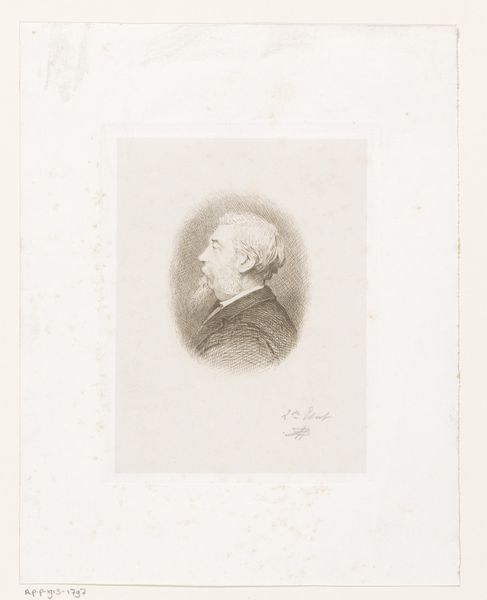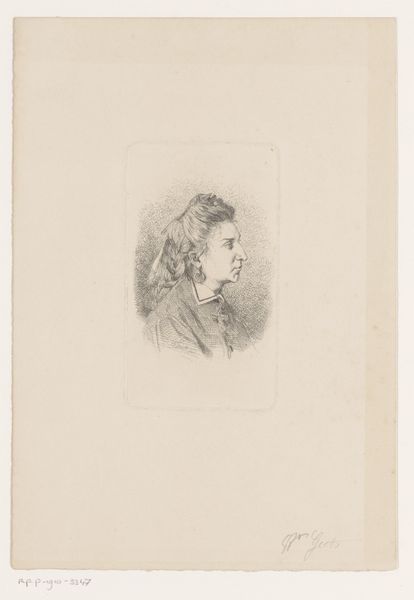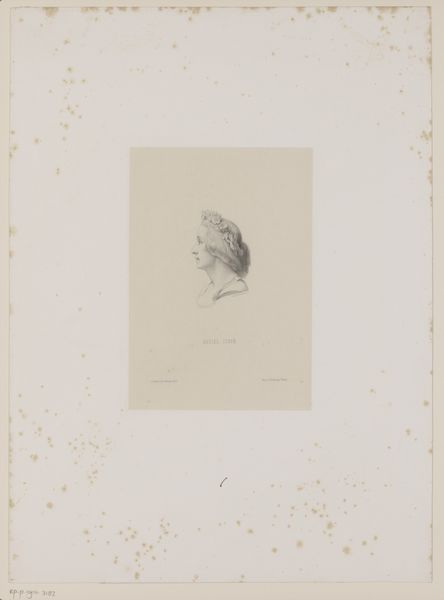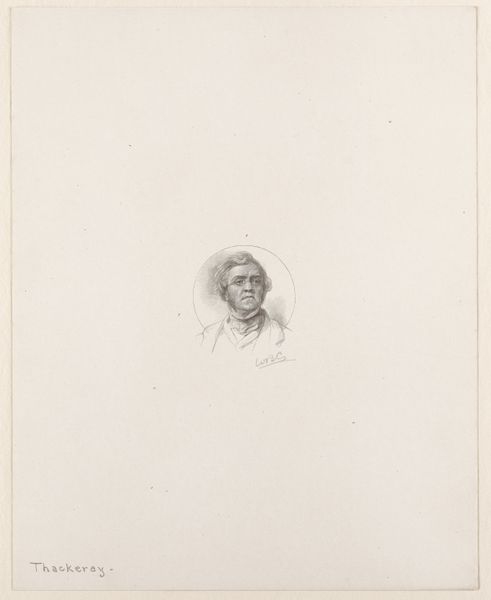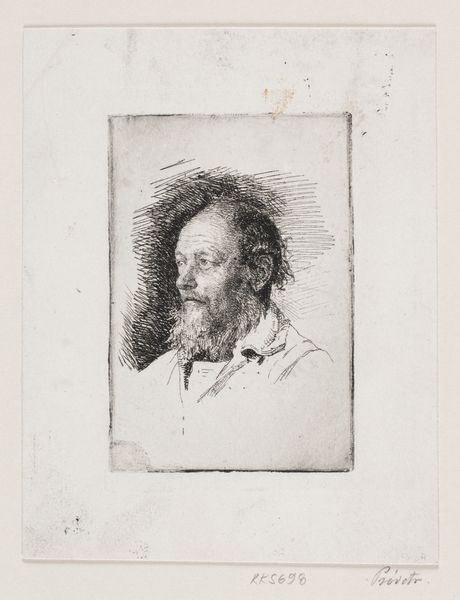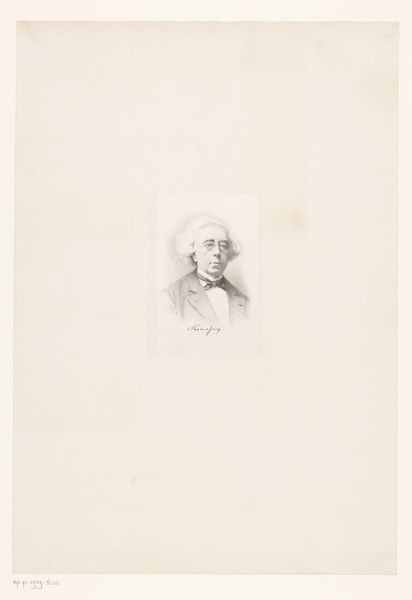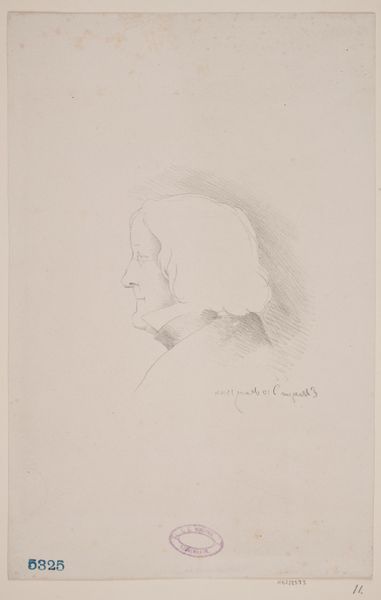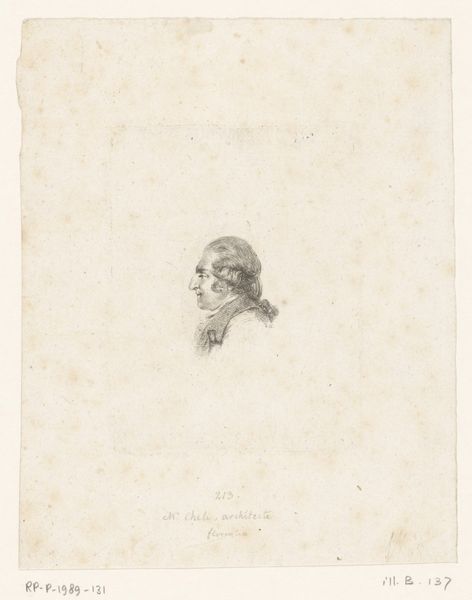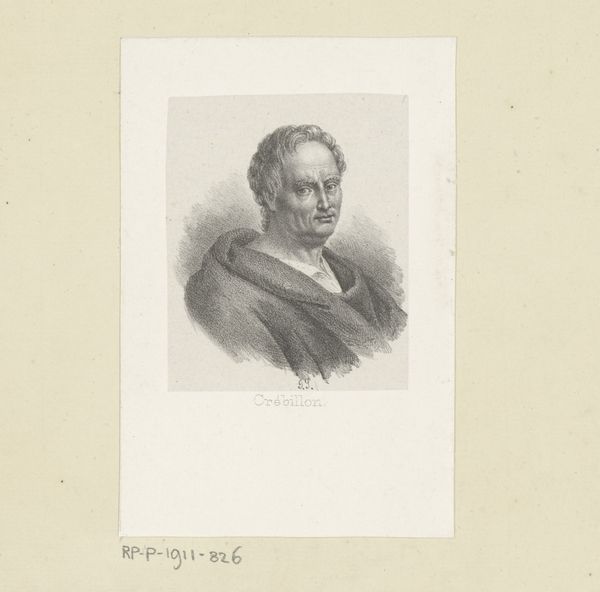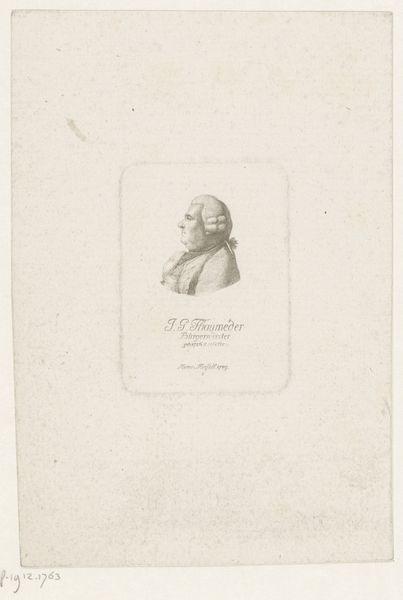
drawing, pencil
#
portrait
#
pencil drawn
#
drawing
#
light pencil work
#
pencil sketch
#
pencil drawing
#
pencil
#
academic-art
#
realism
Dimensions: height 158 mm, width 119 mm
Copyright: Rijks Museum: Open Domain
Auguste Danse made this portrait of Charles, Count of Lannoy with etching around 1927. Observe how Lannoy turns his head to the side, with a stern expression. This pose and facial expression are conventions of the time period, evoking authority and seriousness. Yet, such depictions are also a continuation from ancient Roman portraiture where the profile view, particularly in coins and busts, was employed to highlight the distinct features and nobility of the subject. We also see it re-emerge in Renaissance portraiture. There, it symbolized the subject’s wisdom, virtue, and status. What is remarkable, however, is how these symbols have shifted over time. In ancient Rome, they were emblems of imperial power. During the Renaissance, they were often associated with humanistic ideals. Here, in this etching, they appear as relics of past authority. The count's gaze, rendered with meticulous detail, seems heavy with the weight of history, a poignant echo of epochs long past.
Comments
No comments
Be the first to comment and join the conversation on the ultimate creative platform.
